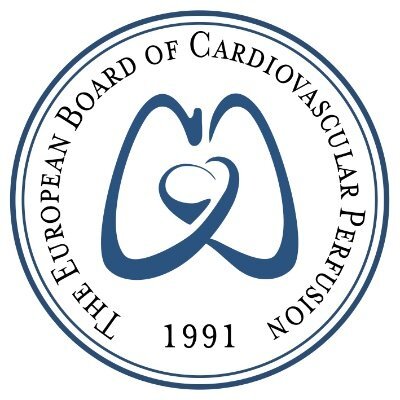
The European Board of Cardiovascular Perfusion was founded in 1991 in order to unite European perfusionists in their desire for equality of standards in both training and professional status. For this purpose, a democratic Organization with representatives from the perfusion societies of all European countries which, at that time were members of the European Community (EC) or the European Free Trade Association (EFTA) was initiated.
Supporting organizations of the European Board of Cardiovascular Perfusion include the European Association for Cardio-Thoracic Surgery (EACTS), the European Society for Cardiovascular Surgery (ESCS) and the European Association for Cardio-Thoracic Anaesthesiologists (EACTA).
Becoming member? European Board Certified Perfusionist?
The European Board of Cardiovascular Perfusion invites applications for Board examinations, to be held in all European Full Member countries during the third weekend of November each year (friday or saturday, by decision of the national delegate). These examinations are supported by the European Association for Cardio-Thoracic Surgery, the European Society for Cardiovascular Surgery and the European Association of Cardiothoracic Anesthesiologists, for the award of the European Certificate in Cardiovascular Perfusion (ECCP).
Perfusionists are eligible for examination when the following criteria are met and attested by their chief perfusionist/head of department:
- Academic training from an EBCP-accredited programme
- Practice in Europe for a minimum of two years
- Currently employed and practicing as clinical perfusionist
- Completion of a minimum of 100 clinical perfusion procedures as primary perfusionist
- Competent to manage perfusion procedures unsupervised
- Competent to operate a wide range of commonly used equipment
- Competent to avoid and manage perfusion accidents
When the application form and fee have been accepted by the Board, the applicant will be sent an information packet which contains:
- The simplified examination syllabus
- A selection of sample questions, which are similar to the examination questions.
There is an appeals procedure for those who do not meet the full criteria to take the examination and feel they have special circumstances. It is stressed that appeals, which must be made in writing to the General Secretary of the Board at the above address, will be carefully scrutinised.
- Prof. Filip De Somer, Chairman
- Gerdy Debeuckelaere, ECCP, General Secretary











